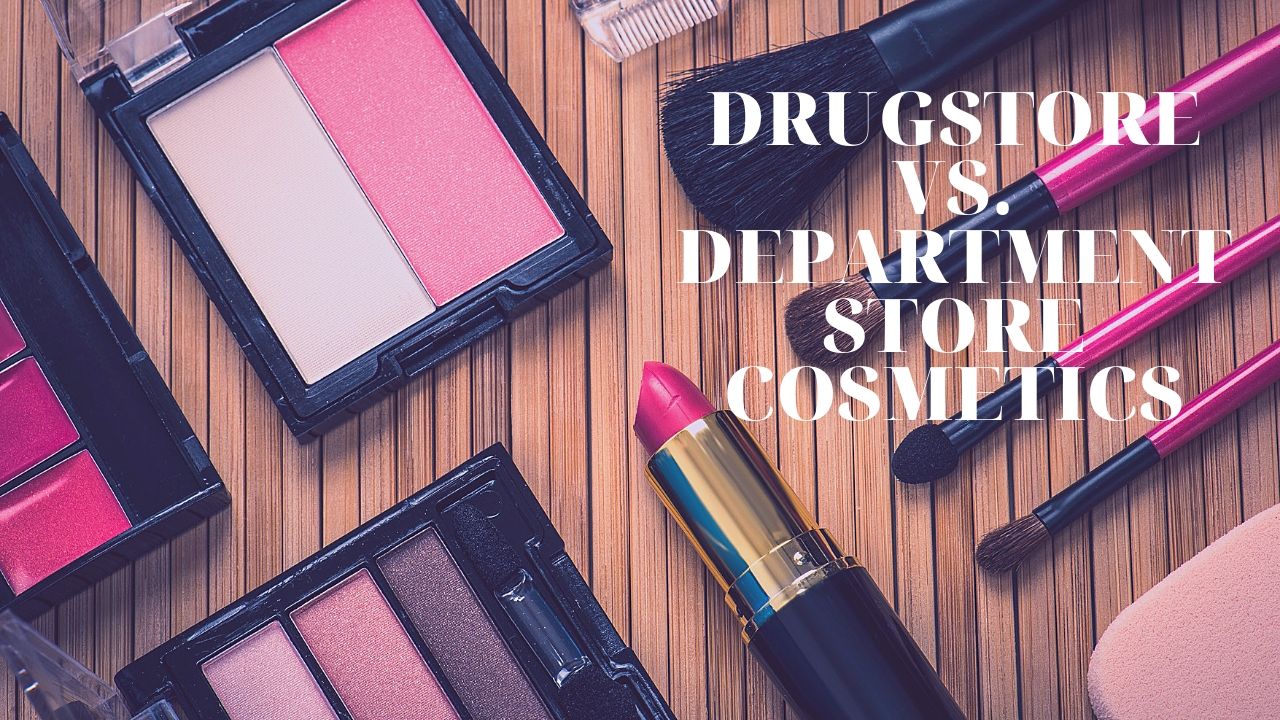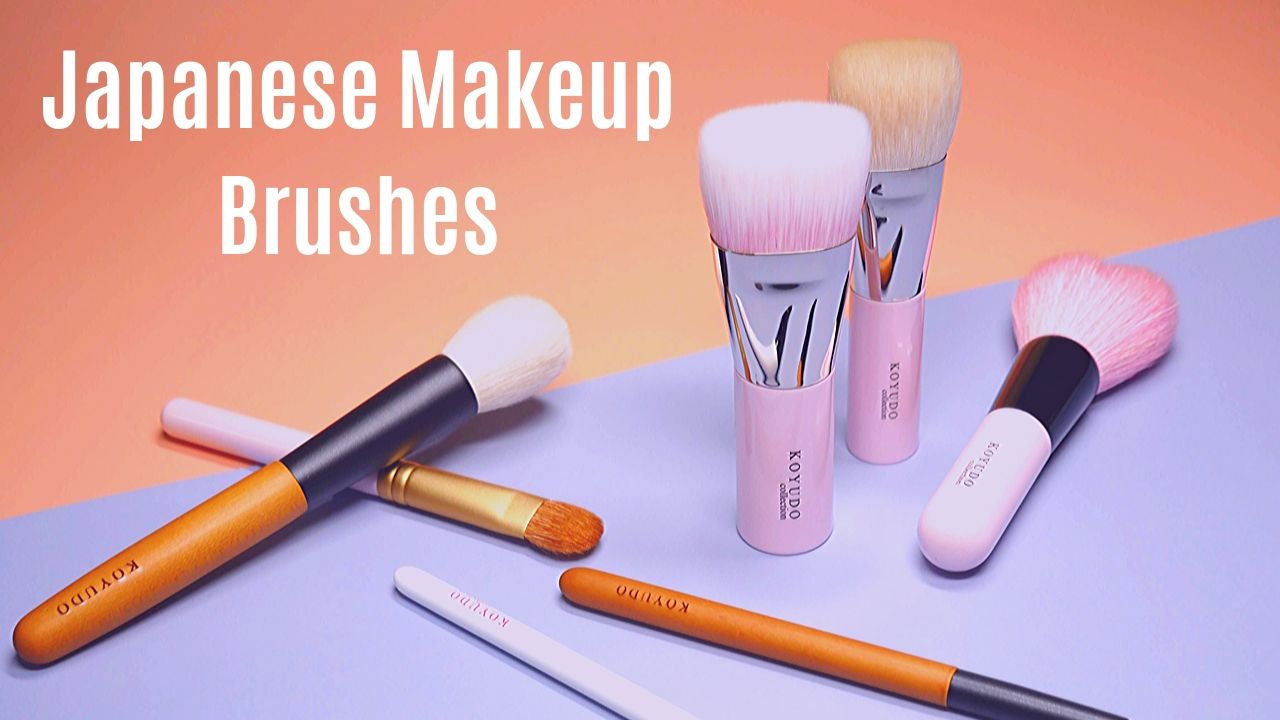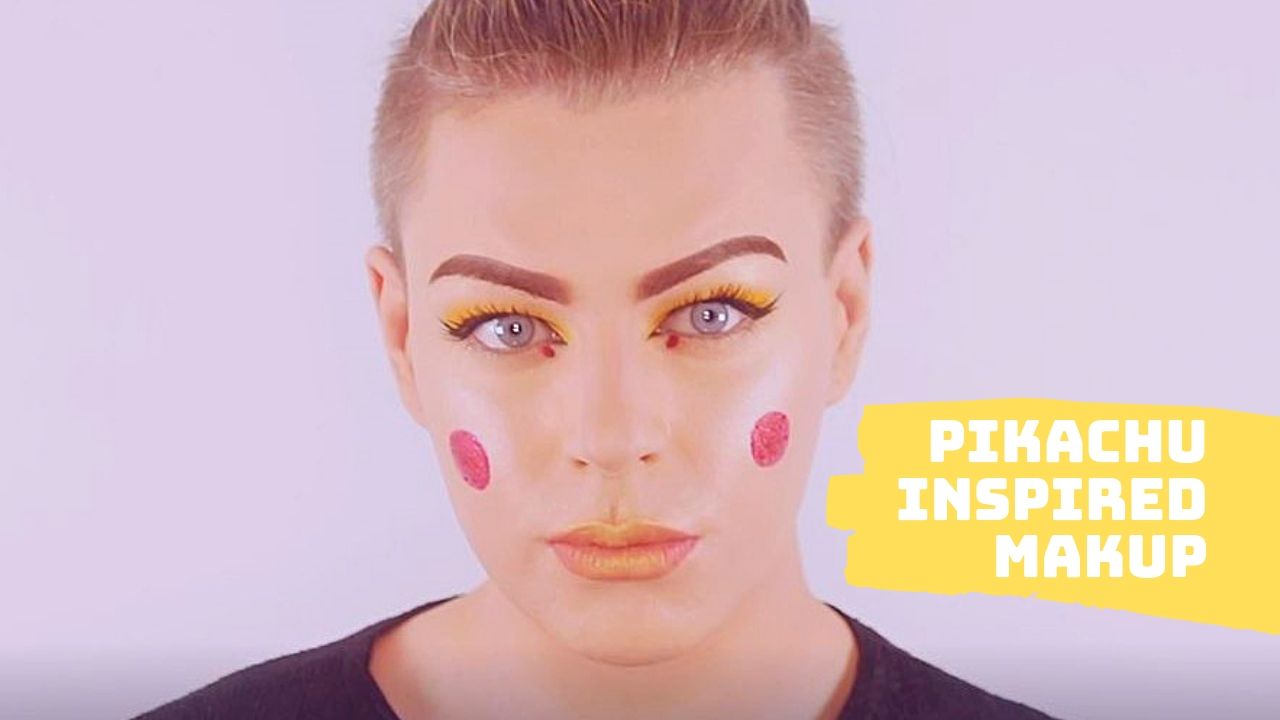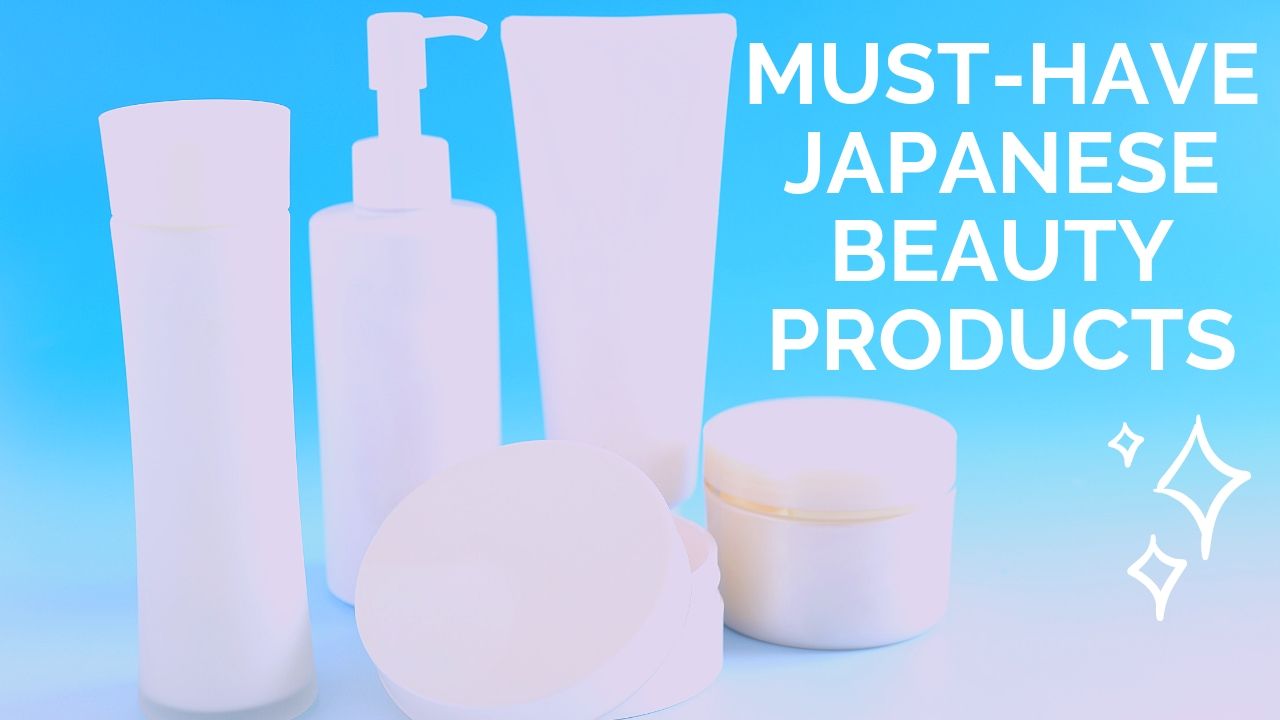Asian beauty products hold a special reputation amongst makeup addicts and aficionados around the world. And within the Asian beauty category, Japanese cosmetics are widely considered to be the highest standard. But what makes them so different from products outside of Japan, you might ask.
First of all, Japan’s beauty industry goes way back—it’s one of the oldest in the world, so Japanese cosmetics companies know what they’re doing and do it well. The secret behind every major Japanese cosmetics company is three key elements: cutting edge science, tradition, and nature.
This can be seen in everything from Japan’s incredible makeup brushes, which come from a long history of traditional handmade calligraphy brushes, to revolutionary skincare extracts discovered by scientists who first observed the effects of the natural sake fermentation process on the hands of sake brewery workers, giving them soft and supple skin.
Then there’s also the fact that Japanese consumers happen to spend more per-capita on skincare and beauty products than any other country in the world. They’re savvy, discerning, and highly active on social media so cosmetics companies need to bring their A-game.
It’s no surprise then that words like “sophisticated”, “natural”, and “high quality” are frequently used to describe J-beauty products, along with… affordable?
The other secret behind Japanese beauty products is “puchi-pura” cosmetics, puchi for “petit” and pura meaning price, cheap cosmetics—in other words, drugstore cosmetics. Many cult favorite beauty products in Japan come from drugstore cosmetics brands offering high-quality makeup for cheap.
Cost Difference
When it comes to Japanese drugstore cosmetics, cosupa —cost performance, or in other words value— reigns supreme. That means you can expect surprisingly good quality at a fraction of the price. Some of the best Japanese drugstore brands are legendary for their flawless eye makeup that doesn’t run or smear, so you won’t need to worry about looking like a raccoon even after a night out dancing with friends.
These drugstore brands can be found for 2,000 yen and under, less than half the price of their department store counterparts. The price difference is even more pronounced for “point makeup”, which refers to blush, lipstick, and eyeshadow.
Quality Difference
While it would be disingenuous to pretend that there isn’t a difference between department store and drugstore brands, puchi-pura cosmetics typically contain the same active ingredients. That’s because most drugstore cosmetics in Japan are actually the diffusion lines of luxury cosmetic brands.
Diffusion lines are created as a more affordable option for consumers with lower incomes, especially young people, in order to introduce them to the brand. These puchi-pura cosmetics come from the same manufacturer and use the same cosmetic formulations as their more expensive counterparts. The biggest differences can be found in the quantity of active ingredients used, as well as the quality of other inactive ingredients.
Because of this, drugstore cosmetics tend to provide less staying power and pigmentation than more expensive cosmetics. You may need to retouch more frequently or apply two to three layers to achieve the same color payoff, which means going through the product more quickly than you would a department store cosmetics brand.
Another area where drugstore cosmetics save money without sacrificing quality is the color availability. Drugstore brands typically offer a more limited selection of shades than department store brands. As a result, it can be difficult to color match products like foundation to your natural skin tone or require blending two separate products.
In addition, department store brands may be more suitable for those with sensitive skin due to the quality of active and inactive ingredients used. They are also more frequently certified for sun protection, whereas drugstore cosmetics may offer some degree of sun protection but won’t be guaranteed to offer it. So be sure to include suncare in your pre-makeup application routine if you use drugstore cosmetics.
Writer’s Personal Experience
To put the difference to the test, I compared one foundation and one lipstick, each from a department store and from the Japanese drugstore Matsumoto Kiyoshi. For reference, I have combination skin type with clear but sensitive skin, and my skin color is a light-to-medium tan with yellow undertones. My daily skincare routine follows the J-beauty four step method: cleansing, essence, serum, moisturizer—along with sun protection.
The Products
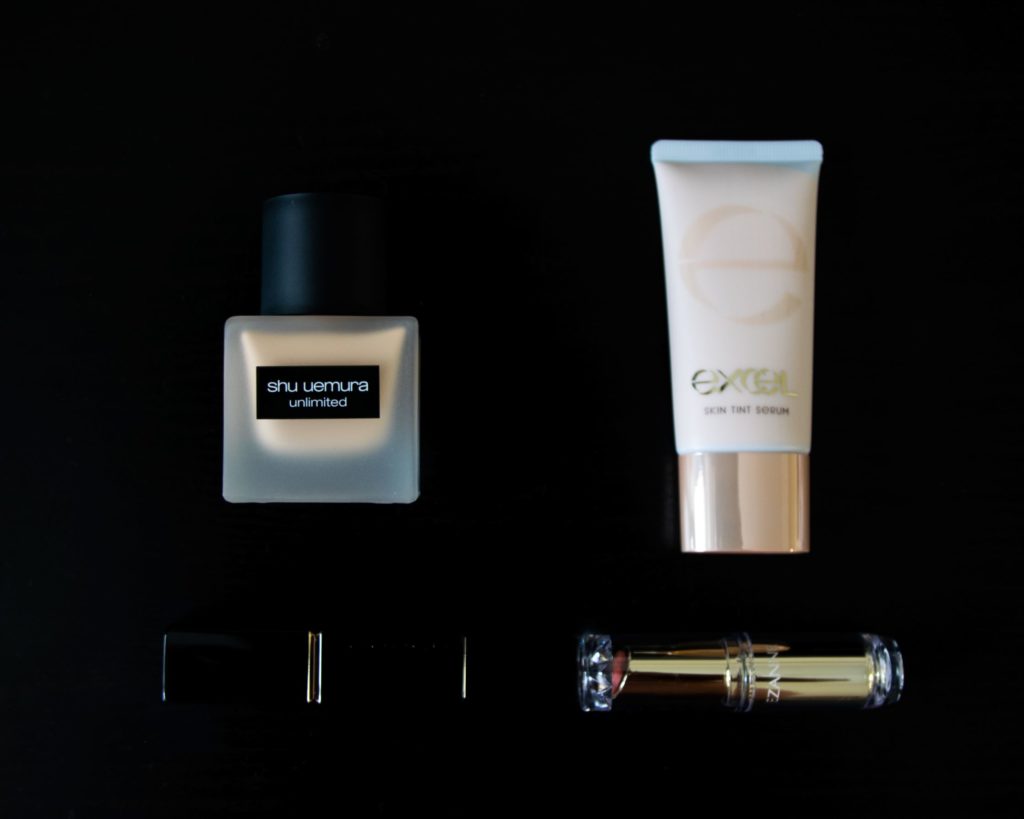
Department Store Cosmetics:
Shu Uemura Unlimited Breathable Lasting Foundation 654
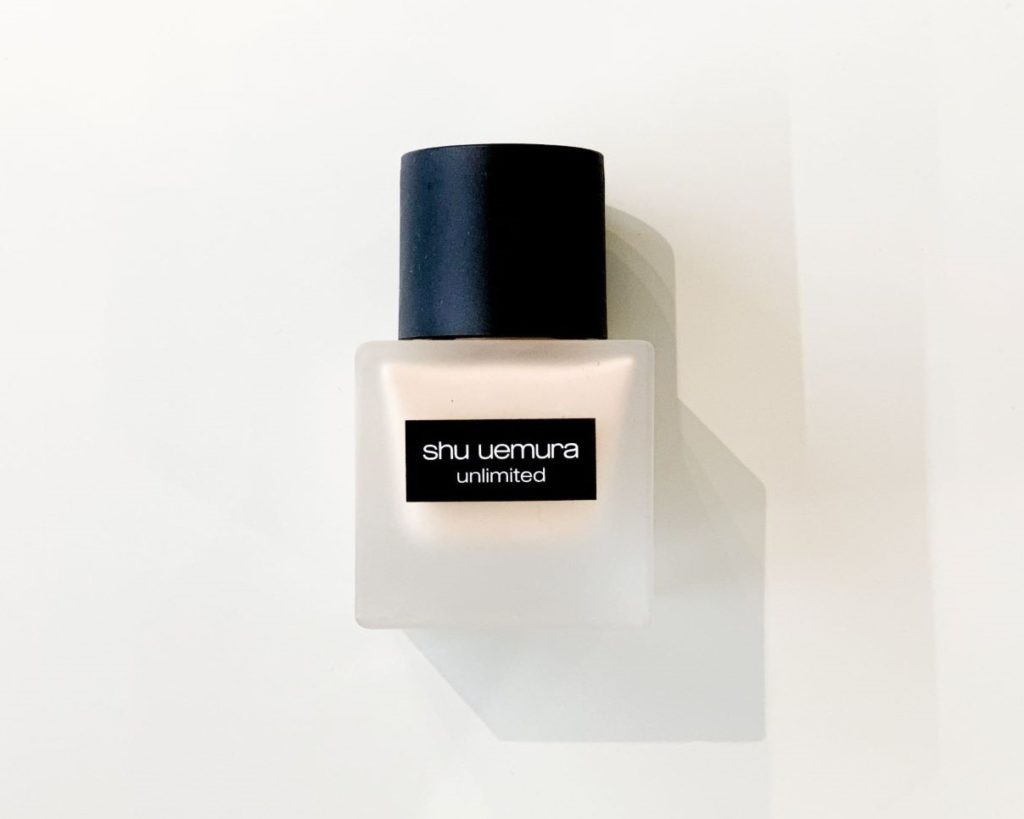
Where to buy: Sephora, YesStyle
SUQQU Moisture Rich Lipstick #10 (Kogareaka)
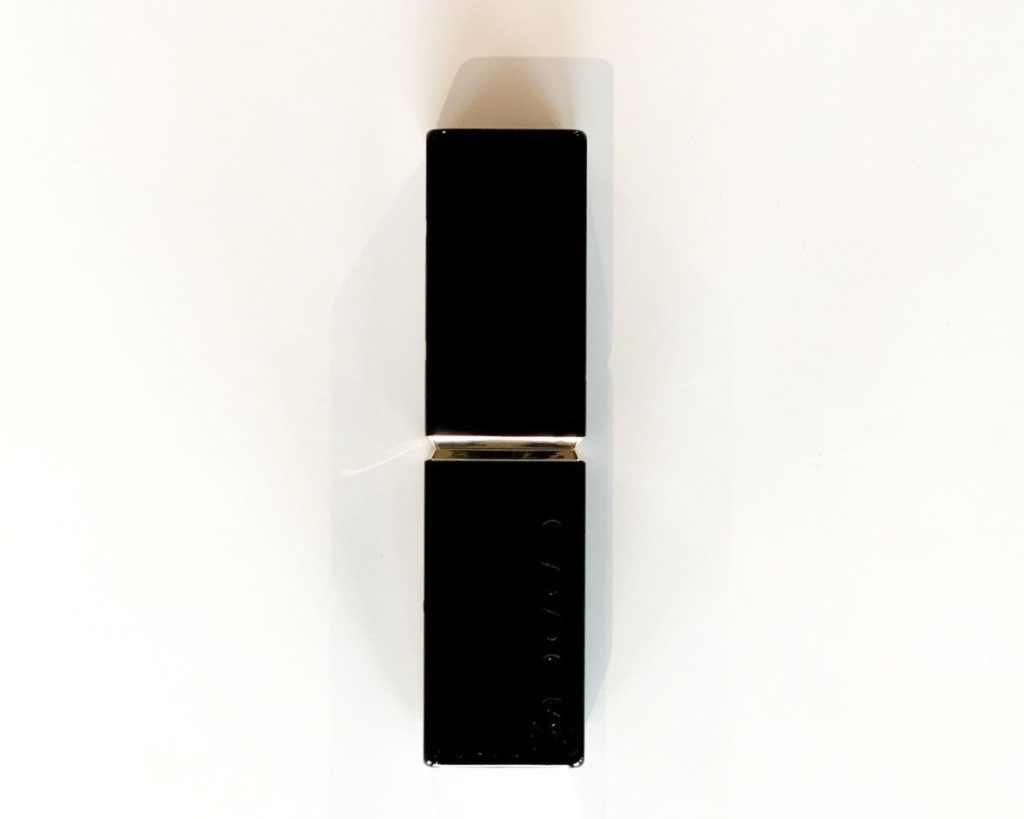
Where to buy: Everglow Cosmetics
I had a great experience getting color matched for a foundation at the Shu Uemura counter. With 24 different shades available for Asian skin tones, I didn’t have to worry about looking too washed out, which sometimes happens to me with Asian foundations because of my tan complexion, or too orange which happens sometimes with western foundations because of my yellow undertone.
For lip color, I went with one of this year’s hot trends—a throwback to 90s brown lipstick. As I tend to go for either nude, pink, or the occasional orange lip so this is a new shade for me. At 5,400 yen I’m curious to see what the result is!
Drugstore Cosmetics:
Excel Skin Tint Serum ST02 (Natural Ochre 20)
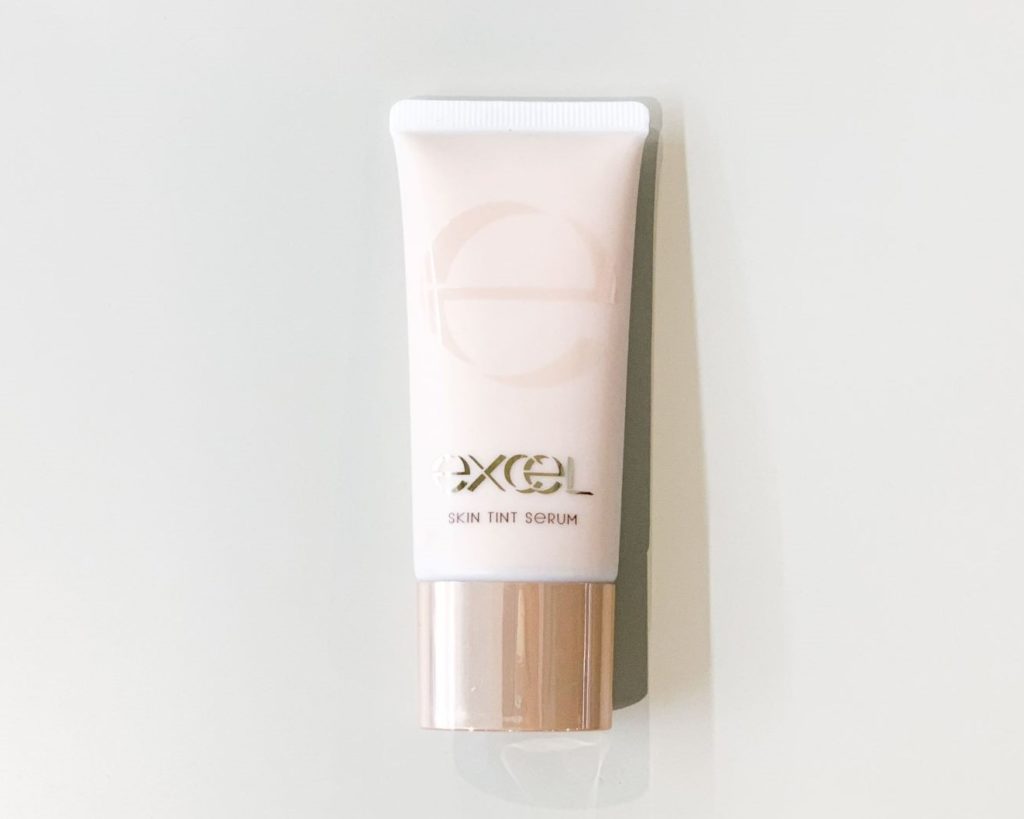
Where to buy: YesStyle, Ichibankao
CEZANNE Lasting Gloss Lip 101 (Brown)
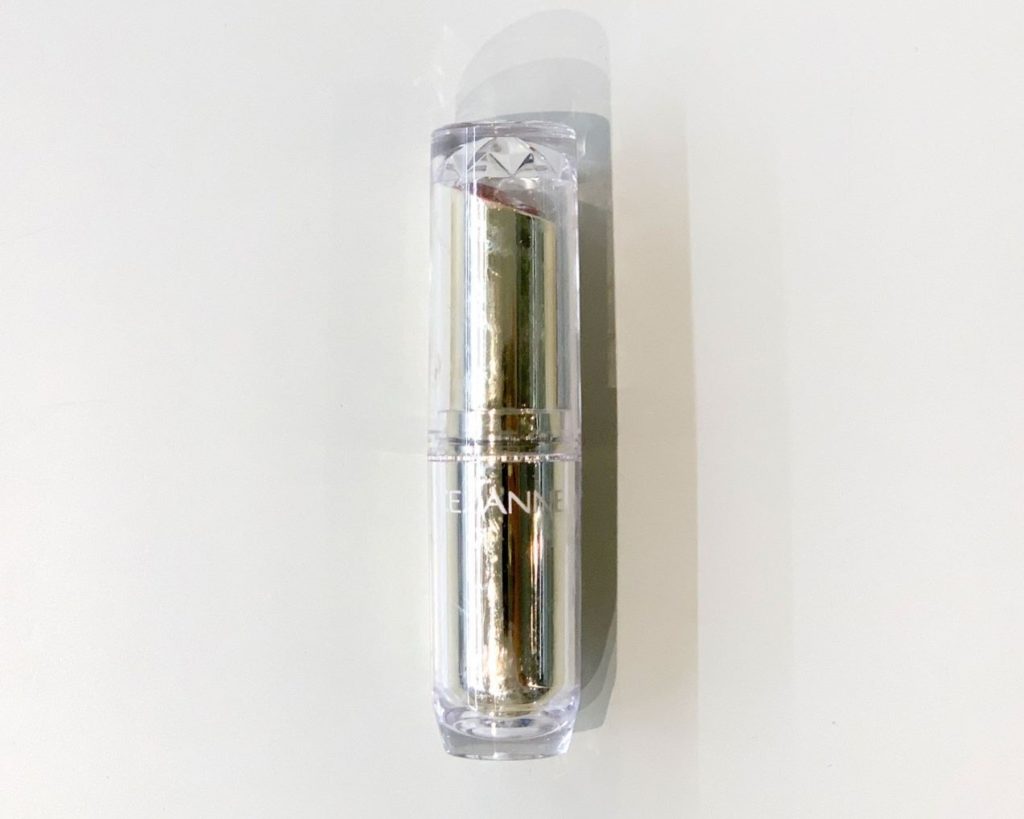
Where to buy: Amazon, Dokodemo
Excel’s Skin Tint Serum foundation was a breezy 1,800 yen but only came in four shades. I should also mention that getting color matched whilst squatting down by the bottom shelf at the drugstore was a completely different experience to finding a foundation at the department store. However, the staff at Matsumoto Kiyoshi were incredibly friendly, and the cosmetics floor was well staffed with a dedicated salesperson for each major drugstore brand.
For my drugstore lip color, I went with another brown, this one a CEZANNE lipstick that has been trending on Japanese Twitter. This is a lipstick you definitely won’t have to worry about losing on a night out because you can find it at most any Japanese drugstore for the almost-criminally affordable at 480 yen.
Testing the Products
I decided to apply the drugstore and department store cosmetics side-by-side for easy comparison. Although I usually apply primer as a base layer for the rest of my makeup, I wanted to see how each foundation would look directly on bare skin. So after my usual four step J-beauty routine, I applied both foundations with my favorite all-over brush.
The Shu Uemura Unlimited Breathable Lasting Foundation was incredibly light, and I ended up using much less product than expected. It also provided surprisingly good coverage despite feeling barely there. In comparison, the Excel Skin Tint Serum required several applications to build up the same amount of coverage, especially on problem areas around my nose and mouth.
One thing I didn’t expect was how closely the drugstore foundation matched not only my skin tone, but also the Shu Uemura foundation. As Excel’s foundation is only available in four shades your mileage may vary, but I was pleasantly surprised.
After applying my point makeup and finishing off with a loose translucent powder, I tried out the lipsticks. Personally, I prefer creamy matte lipsticks over glossy lipsticks, so I wasn’t sure how I would like either one. Turns out, I had nothing to worry about. Neither of the lipsticks had that stickiness one tends to associate with lipgloss; instead, they were nicely moisturizing, especially the CEZANNE which includes shea butter, olive oil, and jojoba oil.
The SUQQU Moisture Rich Lipstick in Kogareaka is a gorgeous shade of brown that came out much more natural looking than the 90s brown I was expecting. It’s the kind of color that would look good on anyone, and made me feel that the 5,000 yen price tag was worth it—for a special occasion lipstick, anyway. It also provided much better color payoff than the CEZANNE Lasting Gloss Lip, which took quite a few applications to reach the same amount of pigmentation, and the hue lacks the same sophistication as the SUQQU. Still, at a tenth of the cost of the department store brand, I could see myself wearing the CEZANNE as a nice everyday moisturizing lipstick.
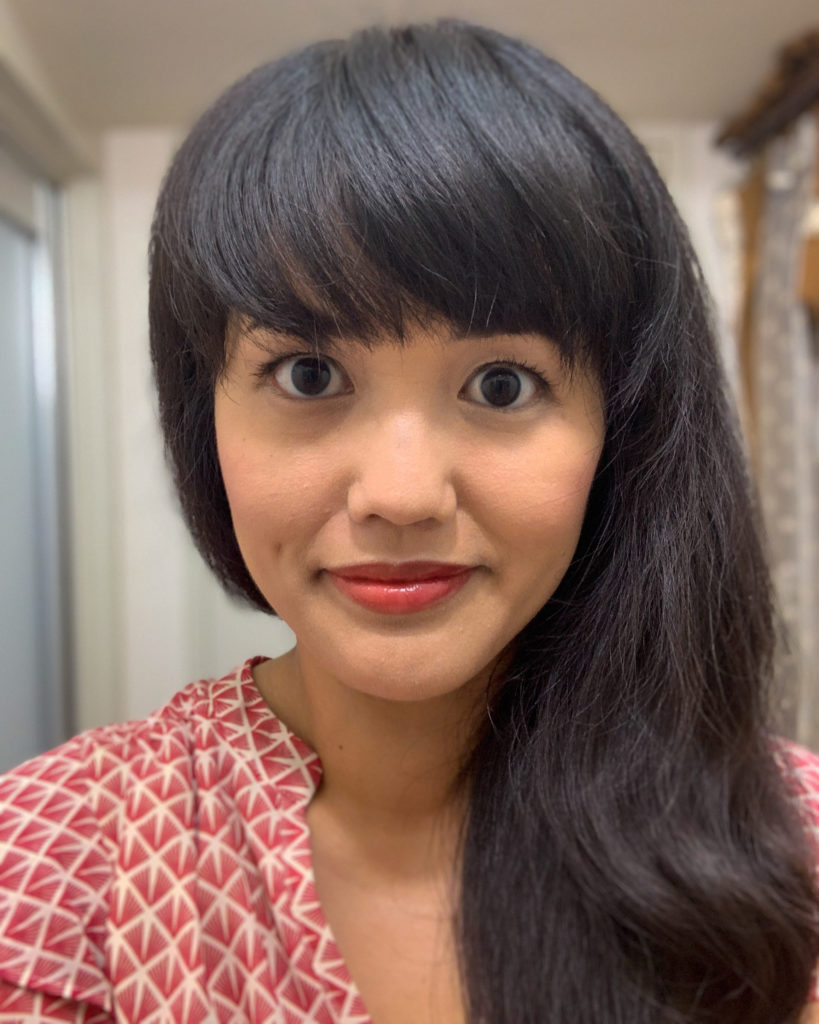
Looking at the photo, can you tell which side of my face has the department store makeup on and which side has drugstore makeup on? To be honest, me neither. The drugstore cosmetics on the left side of the image and department store cosmetics on the right. Despite the SUQQU lipstick being more pigmented in person, in photos the color came out quite similar.
I was genuinely shocked at how closely the two compared. Although I personally use department store cosmetics for most of my makeup needs, I can’t deny how good the Japanese drugstore cosmetics are.
Tips for using a Department Store and Drugstore Cosmetics
One way to maximize the staying power and color payoff of your makeup while minimizing the cost is to focus on when and how you choose department store cosmetics versus a drugstore brand.
Depending on the Makeup Item
Using department store cosmetics for your base makeup will give you a solid base layer on which to apply the rest of your makeup. Apply a high-quality primer before layering on more expensive foundation, finishing off with drugstore cosmetics for your point makeup. This can help ensure that your skin looks flawless, while still allowing you to play around with different looks for your eyes and lips with the less expensive drugstore brands.
Depending on the Situation
When you know that you’re probably going to need to reapply your makeup sometime over the next 24 hours, it can be a good idea to carry department store cosmetics for quick touching up on the spot. The lower price point of drugstore beauty products often translates to smaller, less bulky packaging. For example, the Shu Uemura foundation I tested came in a gorgeous but heavy glass container, while the drugstore foundation came in a slim plastic container. The reduced size of the Excel foundation makes it much easier to carry, even in the smallest handbag or slimmest clutch.
When you know that you’re probably going to need to reapply your makeup sometime over the next 24 hours, it can be a good idea to carry department store cosmetics for quick touching up on the spot. The lower price point of drugstore beauty products often translates to smaller, less bulky packaging. For example, the Shu Uemura foundation I tested came in a gorgeous but heavy glass container, while the drugstore foundation came in a slim plastic container. The reduced size of the Excel foundation makes it much easier to carry, even in the smallest handbag or slimmest clutch.
Another situation where you might want to choose Japanese drugstore cosmetics over a more expensive department store brand is when experimenting with new makeup trends, especially when it’s unclear whether a look is here to stay for a while or only a passing fad. Following Japanese social media is a great way to find out which puchi-pura cosmetics are trending, and which products give even better results than their sticker price would suggest.
Recommendations for Department Store Cosmetics
Shu Uemura
Shu Uemura is one of the best-known department store cosmetics brands from Japan. They became famous for introducing the rest of the world to Japanese cleansing oils and maintain a reputation for edgy but chic cosmetics with a distinct Tokyo flair.
THREE cosmetics
THREE cosmetics is a luxury Japanese brand that focuses on holistic care, including skin care, body care, hair care, and wellness, as well as care for nature and the environment. Their organic plant-based products contain no parabens, artificial fragrances, or coloring, and are 100% free of animal testing.
KANEBO
KANEBO is a global cosmetics brand from Japan whose concept is “Chrono Beauty”, or using the right skincare and beauty products at the optimal time. Their makeup products aim to surpass trends and create a timeless look via naturally healthy and radiant colors.
SUQQU
The premium beauty brand SUQQU is well known within Japan—and quickly gaining popularity outside of Japan—for its minimalist yet methodical “Gankin” facial massage technique. Their cosmetics also follow the principle of minimalist beauty, with a focus on enhancing one’s natural beauty with sophisticated palettes themed after colors found in nature throughout the seasons.
Koh Gen Do
Koh Gen Do is a department store cosmetic brand created by a Japanese actress who was suffering from skin problems caused by her heavy movie set makeup. Combining cutting edge beauty technology with pure botanicals, their mission is to enhance nourish and protect the beauty of natural skin, regardless of one’s age or skin type. It’s a favorite among makeup artists today looking to achieve a dewy, natural look.
Recommendations for Drugstore Cosmetic Brands
Canmake
Canmake, from IDA Laboratories, targets university students and young women in their early 20’s with cute and fresh looks that pop. Their products have great color payoff for a drugstore brand.
CEZANNE
CEZANNE cosmetics is a popular puchi-pura brand whose goal is to be kind to the earth, kind to customers, and kind to the skin. They operate at an ultra-affordable price point while offering quality cosmetics that trend toward soft pink and pastel hues.
MAQUILLAGE
MAQUILLAGE is the main diffusion line of the high-end department store cosmetics company Shiseido. It focuses on young women seeking more sophisticated and polished looks for the workplace and beyond. Because the target market for MAQUILLAGE is career women in their 20s and 30s, their prices trend toward the higher end of the spectrum for drugstore cosmetics.
KATE
The cool and sharp Japanese cosmetics brand KATE emerged in the late 90s with the slogan “No more rules” and the goal of empowering women to style and create their own looks, as opposed to following the template of looks shown in magazines. Thanks to their parent company, KANEBO cosmetics, KATE is able to offer a wide variety of trendsetting products at an affordable price point.
Majolica Majorca
Another Shiseido drugstore brand, Majolica Majorca aims to be the introductory first Shiseido product for girls and young women. Their makeup trends toward more youthful looks and they have frequent product tie-ins with Disney characters.
WriterBio
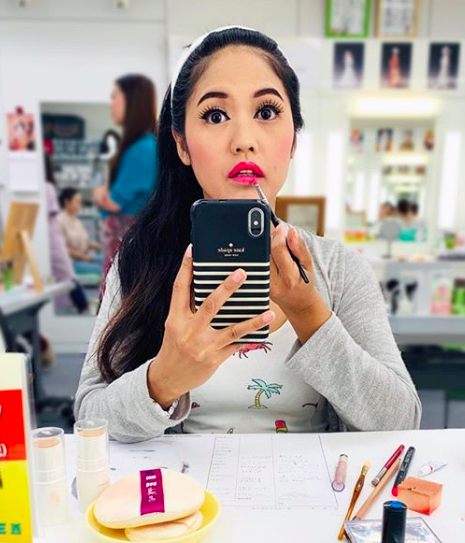
Christine is a Tokyo local who has been writing about Japanese food, language, and culture since 2015. She first embarked on her adventures in the world of Asian beauty as an exchange student at Waseda University. When she’s not eating, writing, or traveling, you can find her performing with the yosakoi dance troupe Tenku Shinatoya SHIN.

